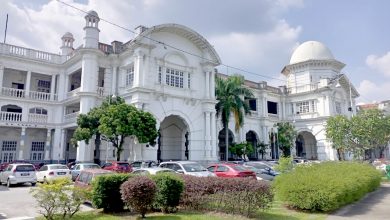Thinking Allowed: Amy’s Permaculture Farm: Benefits to the Community and Environment


By Mariam Mokhtar
In Part I of her story, Amy Tan, and her husband, who owned and ran a permaculture farm on the hills overlooking Lenggong explained the concepts of permaculture and the benefits to her and her three young children.
In this excerpt, she explains the impact of permaculture on the community, climate change and the environment.
Mariam Mokhtar: How does permaculture empower Malaysians? Are there many permaculture sites in peninsular Malaysia?
Amy: Malaysia is fortunate that the permaculture concept has been very popular over the past five years. Many people, especially urbanites, who have land or gardens, choose this method, to cultivate their sites.
Urban community gardens in KL, like ‘Kebun Kaki Bukit’ in Bangsar, ‘TTDI edible gardens’, and social enterprises that promote permaculture, such as ‘Urban Hijau’ and ‘Eats, Shoots and Roots’, offer educational workshops and programs where one learns about permaculture and sustainable living skills.
- How does permaculture benefit the community?
Amy: Reports from other permaculture projects around the world have shown that the locals are initially suspicious. The establishment of a pioneering permaculture project has this effect because it is very different from conventional agriculture and gardening.
We expect farmers to grow vegetables in neat rows. A permaculture garden may look unkempt when one first enters it; but as one walks through the farm, one sees a variety of herbs, vegetables and fruit trees growing together.
Some Lenggong residents considered us odd. We collected bags of coconut residue, which were thrown away after the coconut milk had been pressed from the coconut shavings. They saw rubbish or waste, but we saw food for our chickens and fish!
The locals were curious and asked us lots of questions. In time, we were unable to find more discarded coconut, because the locals were feeding it to their livestock!
After the initial curiosity, people began to appreciate the values of this system of farming.
In permaculture, individuals influence one another. They embrace new ideas and change their existing ways to serve their goals more economically. It helps both their wallets and the environment.
- Do you think your permaculture project could help the environment?
Amy: Definitely! The manner in which the land is used makes it more productive and resilient.
Most people, in Lenggong, have land that they work, but often, they abandon the land, because they feel it’s too hard to make a living. So, they leave for the cities.
As more people learn about permaculture, they begin to grow their own food. Their financial burden is reduced and they become healthier as the quality of food is superior. Any excess produce can be sold at a premium, as it was grown without chemicals.
Climate change can affect many aspects of our lives and the most fundamental one is food. We feel more secure knowing that we can grow our own food, in our garden.
- You appear to be self-sufficient and use solar energy and water from the jungle stream for cooking, drinking and washing, while your food comes from your farm and livestock. Are there any modern appliances which you cannot live without?
Amy: Of course! We are not attempting to live a backward jungle life. We have young kids, and a washing machine is crucial! We use a range of appliances as long as they are suitable for an independent off-grid solar system. Hairdryers, electric kettles and irons are a no-no.
- Can anyone “do” permaculture? Or does it need a tough and resilient person, who is prepared to overcome teething problems, to succeed?
Amy: Being resilient is crucial to pursue some things in life. It is a choice. The temporary setbacks will make you tougher. With the right frame of mind, we accept problems as part of the learning process.
We have a little ritual for people coming to our farm as apprentices. On their first day, they need to proclaim confidently, “I am a farmer!”. This empowers them to channel the “common sense” of a farmer to solve any problems which may arise.
- What is your advice to others who wish to learn about permaculture?
Amy: They should pursue it, if it feels right for them, for their children or for their community. Permaculture is rewarding, beyond just chemical-free fresh produce and delicious food!


